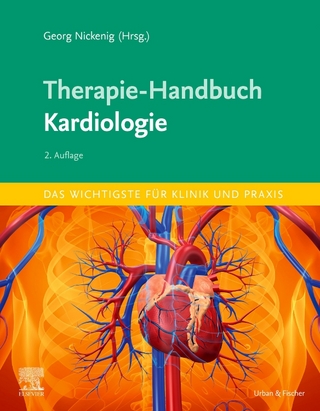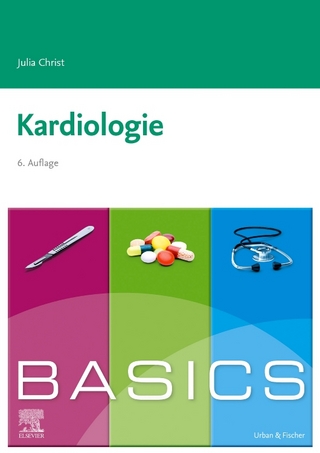
Adaptive Protection of the Heart
CRC Press (Verlag)
978-0-367-24625-9 (ISBN)
- Titel ist leider vergriffen;
keine Neuauflage - Artikel merken
Felix Z. Meerson
PRIMARY STRESS DAMAGE OF THE HEART. Conversion of the Cardiotropic Adaptive Effect of Stress Into a Detrimental One. Stress Damages to the Cardiac Function. Stress Damages to Energy Provision in Cardiac Muscle. Myocardial DNA Injury and Outburst of Its Reparative Synthesis in Stress. Extracardiac Damages in Stress and Their Possible Contribution to Impairment of Cardiac Function. Activated Lipid Peroxidation and Cardiomyocyte Membrane Injury in Stress. Impaired Activity of Cardiomyocyte Na-K and Ca Membrane Pumps in Stress. Stress Damages to Cardiac Structures. The Pathogenetic Chain of Cardiac Stress Damage. THE PLACE OF PRIMARY CARDIAC STRESS DAMAGE IN THE PATHOGENESIS OF ARRHYTHMIAS, ISCHEMIC DISEASE, AND SUDDEN CARDIAC DEATH. Role of Stress Damage to the Heart in Impairment of Its Electric Stability and Development of Arrhythmias in the Experiment. Role of Primary Stress Damage in Arrhythmias and Sudden Cardiac Death in Man. Role of Stress Reaction in Ischemic Disease. Relation Between Stress Reaction and Ischemia in the Pathogenesis of Arrhythmias and Sudden Cardiac Death. ADAPTATION TO STRESS AND ITS CARDIOPROTECTIVE EFFECT IN STRESS, ISCHEMIC, AND REPERFUSION DAMAGE. Adaptation to Stress and Its Main Neurohumoral Mechanisms. Adaptive Protection of the Heart from Stress Damage. Adaptation to Stress Prevents and Abolishes Disturbances to the Cardiac Contractile Function and Electric Stability in Acute Ischemia, Reperfusion, Myocardial Infarction, and Post-Infarction Cardiosclerosis. CENTRAL STRESS-LIMITING SYSTEMS AND CARDIOPROTECTIVE EFFECTS OF THEIR MEDIATORS AND ACTIVATORS. GABA-ergic System and Benzodiazepine Receptors (with M. G. Pshennikova). Opioidergic System (with M. G. Pshennikova). Parasympathetic System, Its Cardioprotective Effects, and Antiarrhythmic Action of an Acetylcholine Analog. LOCAL STRESS-LIMITING SYSTEMS AND THEIR CARDIOPROTECTIVE EFFECTS. Antioxidant Heart Protection from Ischemic, Reperfusion, and Stress Damages. Prostaglandin System and Heart Protection from Stress and Ischemic Damages (with M. G. Pshennikova). Adenosinergic System and Heart Protection from Stress, Ischemic, and Reperfusion Arrhythmias (with M. G. Pshennikova). THE PHENOMENON OF ADAPTIVE STABILIZATION OF STRUCTURES AND HEART PROTECTION. Effect of Adaptation to Stress on Cardiac Resistance to the Arrhythmogenic and Contractural Action of High Calcium Concentrations. Effect of Adaptation to Stress on the Function of the Sarcoplasmic Reticular Calcium Pump, Mitochondria, Creatine Phosphokinase System, and Their Resistance to Autolysis. ADAPTATION TO INTERMITTENT HYPOXIA AND ITS USE FOR PROTECTING THE HEART FROM STRESS AND ISCHEMIC DAMAGE. Adaptation to Intermittent Hypoxia Prevents Myocardial Stress Damage and Cardiac Arrhythmias. Adaptation to Intermittent Hypoxia Prevents Hepatic Stress Damage and Atherogenic Dyslipidemia. Differences of Adaptation to Intermittent Hypoxia from Adaptation to Continuous Hypoxia, and the Tactics of Its Application. Regimen and Organization of Adaptation to Intermittent Hypoxia in the "Mountain Climate Hall". Effect of Adaptation to Intermittent Hypoxia on the Resistance of Practically Healthy Untrained Persons to Physical Loads and on Some Factors of Ischemic Heart Disease. Effect of Adaptation to Intermittent Hypoxia on the Course of Neurasthenia and the Extent of Arrhythmias in Neurocirculatory Dystonia. Effect of Adaptation to Intermittent Hypoxia on the Indices of the Immune System and on the Course of Some Allergic Diseases. Prospects of the Use of Adaptation to Intermittent Hypoxia. CONCLUSION.
| Erscheinungsdatum | 19.06.2019 |
|---|---|
| Reihe/Serie | Routledge Revivals |
| Übersetzer | Alexander V. Galkin |
| Zusatzinfo | 1 Halftones, black and white; 93 Tables, black and white |
| Verlagsort | London |
| Sprache | englisch |
| Maße | 178 x 254 mm |
| Gewicht | 454 g |
| Themenwelt | Medizinische Fachgebiete ► Innere Medizin ► Kardiologie / Angiologie |
| Studium ► 1. Studienabschnitt (Vorklinik) ► Anatomie / Neuroanatomie | |
| ISBN-10 | 0-367-24625-2 / 0367246252 |
| ISBN-13 | 978-0-367-24625-9 / 9780367246259 |
| Zustand | Neuware |
| Haben Sie eine Frage zum Produkt? |
aus dem Bereich


